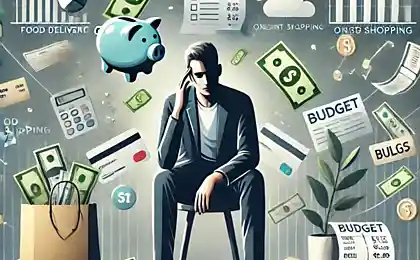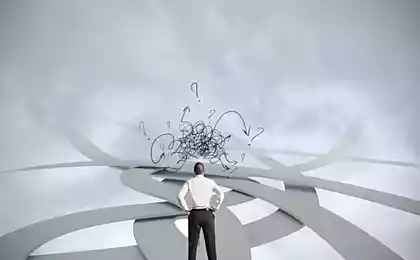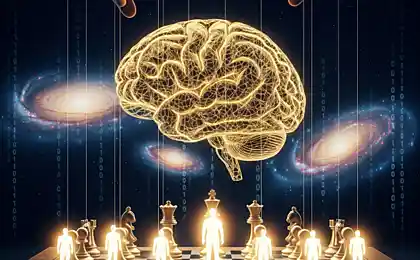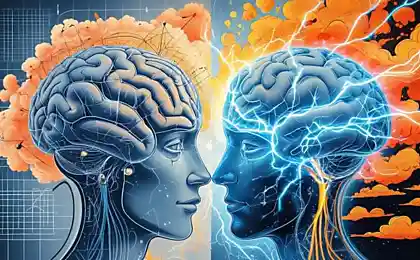240
What is the scarcity effect and why do you buy what you don’t need?
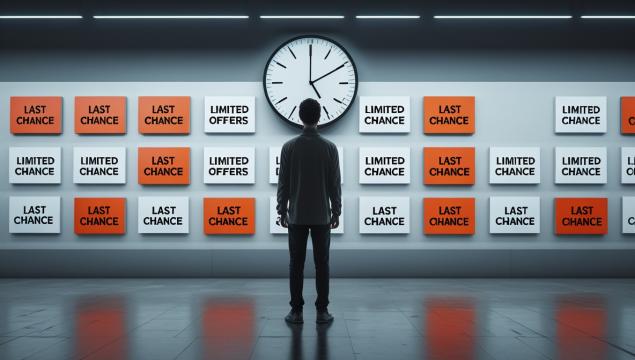
Imagine: you calmly flip through the feed on the social network, when suddenly you see an ad – “Just today!” 70% off! There are only 3 copies left! Your heart starts beating more often, your palms sweat, and you feel an irresistible urge to make a purchase. Familiar? You've just encountered the deficit effect, one of the most powerful psychological triggers in the world of consumption.
The scarcity effect makes us perceive goods as more valuable and desirable just because they are limited in time, quantity, or availability.
Why does the deficit effect so much on our behavior?
Our brains have evolved to emphasize rare resources. Thousands of years ago, it helped our ancestors survive, because limited resources were synonymous with survival. In the modern world, this ancient program is still active, despite the fact that most of us live in a society of abundance.
According to behavioral economics research, the deficit effect is based on three key psychological principles:
- Fear of Loss of Profit (FOMO) Fear of missing out on something important or profitable makes us act impulsively
- Social proof If something is in high demand, we automatically consider it more valuable.
- Reactive Resistance Theory When our freedom of choice is limited, we seek to regain control, increasing the desire to obtain scarce goods.
Marketers and sales professionals masterfully use the scarcity effect to drive impulse buying. They create artificial deficits through:
Maria went to the online store just to view a new collection of clothes. She saw a countdown timer and the inscription "There are 2 hours left until the end of the sale." Although she had no plans to buy anything, after 30 minutes there were three things in her basket that "couldn't have been missed." Three days later, she was surprised to find that the "limited" sell-off was still going, just the timer had been restarted.
- Time limit “Today only,” “There are 2 hours left until the end of the sale.”
- Limitation on quantity - "Only 5 items left", "Last copy"
- Exclusive proposals - "Only for members of the club", "Limited series"
- Seasonal and holiday sales New Year's Eve Collection, This Summer Only

How the Deficit Effect Destroys Our Financial Stability
Exposure to scarcity has serious consequences for our budget and living space.
- Impulsive spending We buy products we don’t need just for fear of missing out.
- Debt accumulation – often for “profitable” purchases used credit funds
- Cluttering space Our homes are filled with things that don’t really work.
- Emotional discomfort Purchases under the influence of scarcity rarely bring long-term satisfaction, but often cause guilt
7 Strategies to Counter the Deficit Effect
- The 24-hour rule: If you want to make an unplanned purchase, give yourself a day to think. Most senses of urgency are artificially created by marketers and weaken in a day.
- Conscious consumption practices: Before each purchase, ask yourself three questions: “Do I really need this thing?”, “Will I use it in a month?”, “Do I buy it because of a real need or out of fear of missing out?”
- Budget planning: Pre-determine the amount for unplanned purchases and do not exceed it, even if the offer seems incredibly profitable.
- Price research: Many "special offers" aren't really unique. Check whether the price is actually reduced by comparing it with other stores or the price history of this product.
- Subscribe from advertising mailings: Minimize the number of triggers that appear daily in your information space.
- Practicing gratitude: Regularly pay attention to what you already have to reduce the desire to buy something new.
- Visualization of consequences: Imagine what this product will look like in your home in six months – will it be used or become a source of clutter?
Real Stories: When the Scarcity Effect Leads to Absurd Situations
Alexey, 35 years old: I bought a special multicooker with the function of making pasta, because the store said that this is the latest model and the new batch will not be in three months. Two years later, I only used it twice. She now takes up space in the kitchen and is only annoyed when I remember how much I paid for her.”
Elena, 28: "During Black Friday, I spent half my monthly salary on 'limited collections' cosmetic sets." Now half of them are still unpacked, because I already have similar tools that I use all the time.”
How to Turn Conscious Consumption into a Way of Life
Confronting the scarcity effect is not just a way to save money, but a whole philosophy of attitude to material values and consumption.

- Minimalism as a philosophy: Focus on the quality of things, not the quantity.
- Value-oriented consumption: Buy products that align with your long-term goals and values, not fleeting desires.
- Environmental approach: Evaluate purchases in terms of their environmental impact
- Sharing practices: Consider renting rarely used items instead of buying.
The scarcity effect is a natural psychological response, but awareness of its mechanisms enables us to free ourselves from imposed consumption patterns. Remember that what is truly valuable is not the things we acquire under the influence of the moment, but the conscious choice in favor of what really improves the quality of our lives.
By learning to recognize marketing tricks and control impulsive decisions, we not only save money and space, but also gain inner freedom from manipulation. And this is perhaps the most valuable resource in the modern world of overabundance of information and goods.
Glossary of terms
The Scarcity Effect (Scarcity Effect)
A psychological phenomenon in which the value of an object increases if it is perceived as rare or inaccessible.
FOMO (Fear of Missing Out)
Loss of profits: Anxiety and anxiety caused by the thought of missing out on an exciting or important event happening elsewhere.
Reactive Resistance Theory
Psychological theory, according to which people especially value freedom of choice and seek to restore it when threatened by loss or restriction.
Social proof
Psychological and social phenomenon in which people copy the actions of others in an attempt to carry out the right behavior in a given situation.
Impulsive shopping
Unplanned purchases made suddenly, with no prior intention of buying a particular product or service.
Conscious consumption
Approach to the acquisition of goods and services based on a rational analysis of the needs and consequences of the purchase, taking into account ethical, environmental and practical aspects.
Minimalism
A lifestyle and philosophy that focuses on reducing material things and eliminating excesses in favor of focusing on the most important aspects of life.
10 Signs You've Made Misfortune Your Habit
10 ways to look confident even when you have no idea what to do next



